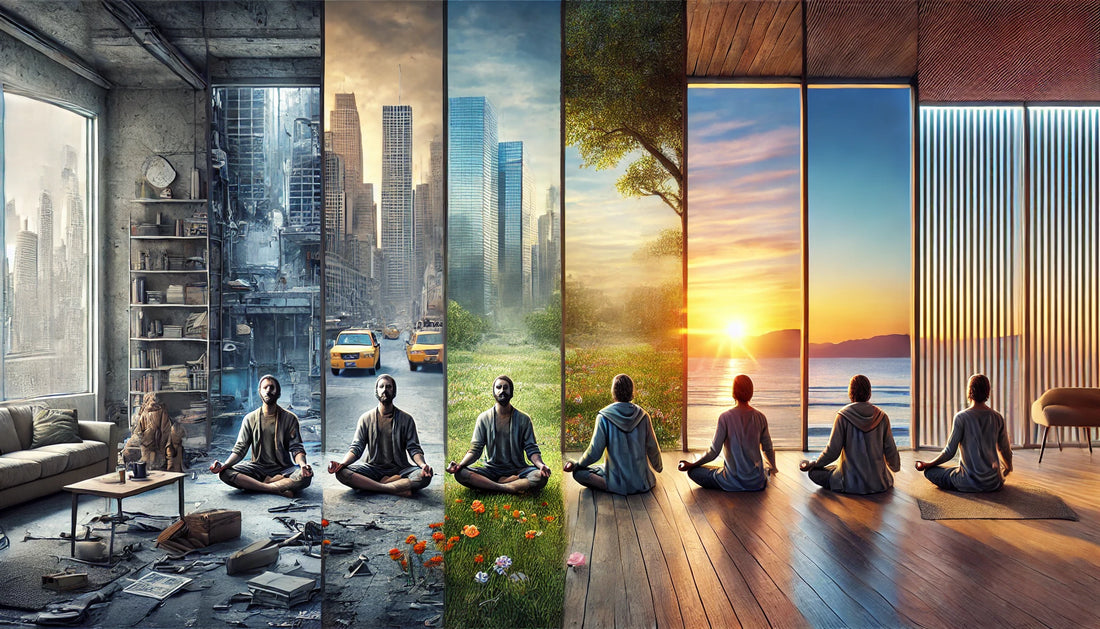Let’s not debate whether advancing yourself and your personal self-help practices is beneficial. Some people refer to self-help and mental development as spiritual practices. I sometimes struggle with this term because spirituality can feel ungrounded. Most people seeking spirituality are deeply grounded in the human experience, limited by their finite bodies. They get confused when thinking about infinite concepts like consciousness. So, let’s focus on the material world we inhabit and not extend to realms without evidence of their existence.
In the first stage of meditation, we make an effort to try it, often with skepticism about its benefits. Distraction and skepticism are normal parts of this process. A good teacher assures students that this skepticism is natural, helping them stay motivated and not become disheartened. Simple lessons can help them become more aware and less distracted.
In the second stage, we start to see meditation's benefits, even if we only practice for five minutes a day. This stage encourages us to integrate meditation into various parts of our day: while walking, during yoga, or even filing taxes. The goal is to invest more in this practice and less in anxiety and stress.

By the third stage, we begin to understand complex mental processes. We notice how our physiology changes when we are stressed versus relaxed. We become aware of internal processes that have been with us all our lives. We recognize what triggers our anger or stress and question why we haven't remained relaxed throughout our lives. We realize that our upbringing and societal influences shaped our behaviors and that healing involves unraveling these influences.
Our childhood experiences, whether positive or negative, profoundly affect our behavior patterns and worldview. The mind often denies these problems to function, leading to disconnection from our body and present moment. We distract ourselves from painful realities, judge others, and prioritize material possessions over nature's subtle beauty. This is part of our journey, and it's not about judgment but understanding where we are on our path.
Beyond these common stages, anything is possible. Some may go deep into meditation, experiencing profound connections and lasting calm. They might become more detached from worldly attachments, achieving a state of peace. While this is rare in the modern world, we can still learn from it. We should strive to maintain a meditation practice that keeps us centered and prevents us from getting overwhelmed by life's struggles.
For example, I once bought a beach house to be near the ocean and breathe ionized air. Later, I realized I could achieve the same relaxation by simply going to Coney Island. This made me reflect on why I felt the need for a beach house. Was it anxiety, or just within my means? It's crucial to balance our ambitions with our capacity and opportunities without letting them cause chronic anxiety.
Ultimately, it's about remembering the importance of connecting with nature and finding ways to integrate these practices into our lives. We need to touch sacred, unpolluted soil, and enjoy nature, balancing our material desires with our need for peace and reflection.
